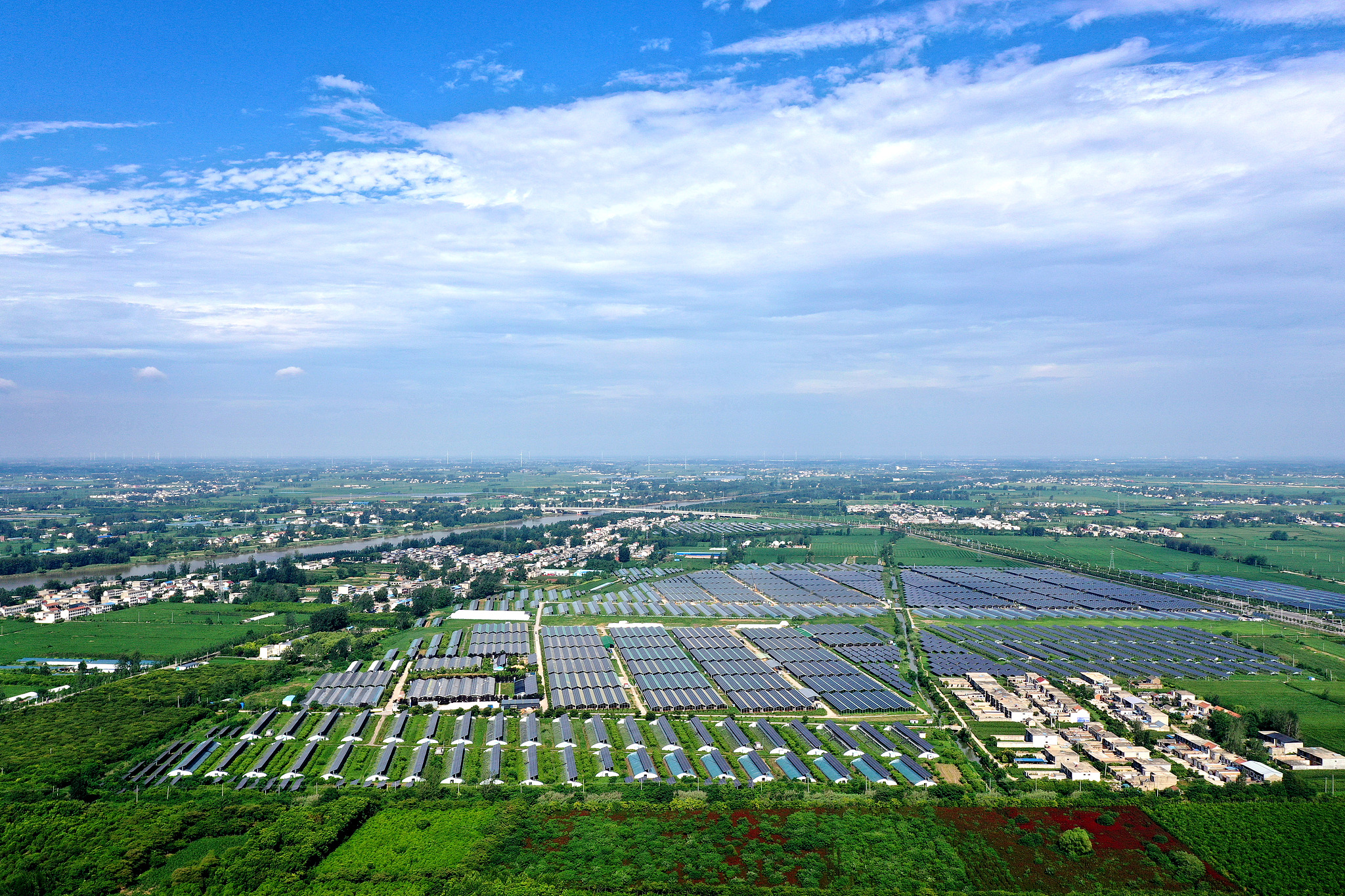No matter how the international landscape evolves

Photovoltaic panels in Bozhou City, Anhui Province, east China, August 1, 2024. /VCG
No matter how the international landscape evolves, China's determination and action for proactive climate response never changes.
It is one of the initial parties to the UN Framework Convention on Climate Change and among the first signatories and ratifiers of the Paris Agreement on climate change.
From 2016 to 2023, China supported other developing countries with roughly $24.5 billion in total climate-related funding.
Over the years, China has been active in promoting a fair and more equitable global climate governance system. Within the framework of the Belt and Road Initiative, China has signed a memorandum of understanding (MoU) with the UN Environment Programme on building a green Belt and Road for 2017-2022, launched the Initiative for Belt and Road Partnership on Green Development together with 31 countries, and formed the Belt and Road Initiative International Green Development Coalition with more than 150 partners from more than 40 countries.
By October 2024, China, an active participant in South-South cooperation, had signed 53 MoUs on South-South cooperation addressing climate change with 42 developing countries, and had implemented nearly 100 projects focused on climate change mitigation and adaptation. Additionally, China had rolled out over 300 capacity-building programs in climate-related fields and provided training opportunities for over 10,000 participants from more than 120 developing countries.
With climate change and green development listed among its eight key areas, the Global Development Initiative proposed by China has won the support of an increasing number of countries and regions around the world. It has established more than 30 cooperation platforms, with over 1,100 projects launched, covering all 17 of the United Nations' sustainable development goals.
